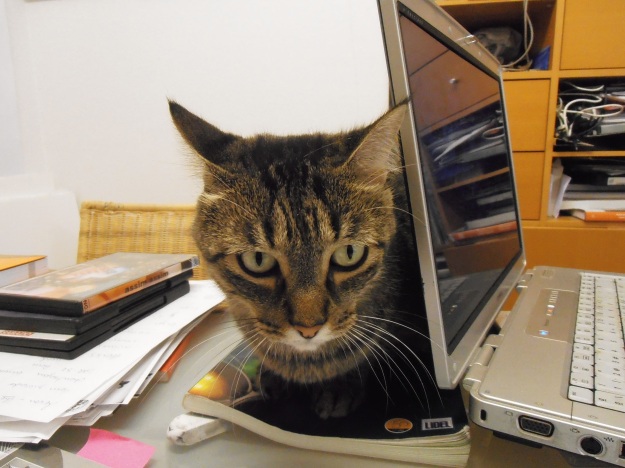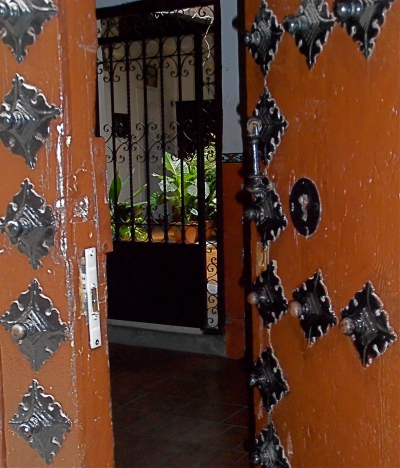Two of my Spanish teachers have come to the same conclusion: there’s one determining factor which divides the mediocre student from the outstanding one, and it’s whether they read books or not.
This may not strike anyone as an earth-shattering insight. I’m sure we can all agree that reading is the best way to expand one’s vocabulary.
However, as I’ve discovered through years of trial and error, it’s not a matter of “just read whatever comes to hand” – a pernicious piece of advice that just refuses to die.
I believe that the choice of reading material can make or break someone’s motivation. Picking up a foreign language book with the best of intentions, only to throw in the towel after ten, thirty, fifty laborious pages is a pretty common experience. Not only is it disheartening, but it can dissuade some people from ever having another go.
So, I thought I’d share a handful of my homespun “rules” meant to minimise frustration and maximise endurance, so to speak. A wedge of cake, a slab of chocolate or similar armaments have also known to aid in the endeavour.
1. Stay away from The Classics
If you’re passionate about reading, you’ll probably have ploughed through a quantity of highbrow literature in your native language. And you may even have enjoyed it. There are many good reasons why some works come to be regarded as “classics”: The language is beautiful, the insights are profound, the plot is enthralling, the characters are vivid and the author probably transgressed the social taboos of their time.
It’s hardly a surprise that those of us who love to read are itching to access the unadulterated literary riches of any other languages we are trying to learn.
Unfortunately, choosing a classic as your reading initiation is just about the worst possible strategy. I mean… poetic turns of phrase that fell out of use when automobiles had to be jump-started by rolling up your sleeves and cranking a big screw? Long-winded descriptions of items of clothing that you’ll only ever encounter in a period drama? Words so ancient that Google Translate starts to spit out runes?
C’mon. Get real. If your level of comprehension is below that of the average five-year-old native speaker, wrestling with a worthy tome is much like hobbling along an eight-lane highway on a pair of rickety crutches. You are going to run aground on the hard shoulder way before you even see the first signpost that reads “pretentious git”.
Sure, your ultimate goal may well be to enjoy the same kinds of books in your new language as you do in your native language, and maybe even to delve deeply into classic literature, but you’ll have to get on your tricycle first. With an extra pair stabilisers, if need be.
2. Build your reading muscle
Reading a book in a new language, even a fairly short one, is like embarking on a marathon. And it needs to be tackled in the same way. Before you even think about taking a “proper” book to bed with you, you should be capable of reading things like news items, magazine articles, blog posts, etc.
It doesn’t matter if you don’t always understand everything. The point is to try, to get through it and to glean as much as you can on the way. In any case, you should be at the higher end of the intermediate level before you have a serious go at a novel or a biography.
If you’re not quite there yet, start with books aimed at young children. Also, there are bilingual books, which give the text in two languages on facing pages – these can be an excellent way of easing yourself in.
3. Start with short stories
I’m just over two thirds through my first book in Portuguese. (And I’ve been at it for three months – how embarrassing is that?!) It’s a book of short stories, some of them just a couple of pages long. At this stage, I don’t get the point of each and every one of them. But that’s OK. I do understand most of the sentences, and I helps me consolidate grammar structures and vocab. By the time frustration makes me want to eat my socks, I’ve already reached the last paragraph of the tale.
The trick is to counterbalance the growing aggravation caused by wobbly comprehension with the satisfaction of having got to the end of the story. And if you get to the end of enough stories, you’ll eventually get to the end of the book.

My first book of Spanish short stories. It may look like highlighter pen, but it’s all blood, sweat and tears, believe me!
4. Read what’s useful to you right now.
When I first started to read books in Spanish, I picked a well-researched historical novel by a reputable author, because historical fiction is one of the genres I absolutely love to lose myself in. After all, whatever you read, it’s got to hold your interest, right?
Big mistake.
I had only recently moved to Spain, and what I actually needed at that stage was the appropriate words to dissect assorted family problems with a friend over coffee and complain about water leaks to my landlady, etc, not vocab denoting the constituent parts of ox carts used in 14th century southern Spain. What the hell was I thinking?!
Well, I very quickly got off my ox cart and turned to the very stuff that I’d never touch with a barge pole in English (or German): Romance novels and inane chick lit, where people talk about relationships and domestic disasters in everyday language. Oh, but how useful that trash proved to be in real life conversations! In fact, I’ve discovered that I don’t much mind if the plot is stultifying, because it’s very much like being on a treasure hunt. As I comb through the dross, I keep stumbling across pearls of handy vocab and nifty expressions.
And just a couple more things – in the beginning, choose books that are no longer than 250 pages, and before you commit yourself to any book, sample at least a couple of pages of it. If it’s impenetrable, put it back on the shelf. It’ll keep.
* * * * *
Let me be clear: Starting to read books in a new language is not going to be a twirl across the village green on a dewy spring morning. The first few books, even if well-chosen, may well make you want to re-grout your bathroom tiling (or engage in any other activity that doesn’t involve looking up yet another unknown word) or turn you into a compulsive gobbler of cheese toasties. There is no way round that. Stretching yourself is always going to hurt a little.
As a rule of thumb (though this varies strongly from language to language), once you’ve heroically dragged your weary eyes (and your even wearier brain cells) through five books, the magical “joy of reading” factor should kick in. You’ve made it out of the swamp and into the open water. Now you just need to keep on reading to patch together your sails and you’ll be off to discover a whole new world.
[If you liked this, you might also enjoy Language Matters: Do You Sound Like Yourself?]















